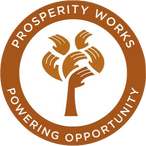Nancy Martira, Communications ManagerThe Consumer Financial Protection Bureau is accepting public comment on a proposal to roll-back existing consumer protections on small-dollar loans. We know this industry is notoriously predatory and now the CFPB wants to make it easier to trap Americans in high-cost debt that they can't afford to pay back. We will be submitting our comment before the May 15th deadline. Please read our letter below. If you would like to have your name or organization added to our letter, please send us a message. You may submit your own comment on this proposal here.
0 Comments
Jill Geltmaker, Vice PresidentEditor's Note: Did you catch our VP Jill Geltmaker on KQRE13 this morning? Here's more information about some of the tips and tools Jill mentions in this segment. If you are an American who is receiving a tax refund, chances are you’re already planning how to spend that money. In one study, 27% of Americans who planned to receive a tax refund said they would use that money to pay down high-interest debt, which is a great use of the money. We also know that a significant number of Americans will use their refund to finally receive medical treatment that they’ve been putting off due to cost. Only 16% of Americans polled in the GoBankingRates survey of 1,000 people planned to put that money into a savings account. There are many good reasons why you should be part of that savvy 16%!
According to a study by the Urban Institute,families with even a small amount of non retirement savings are less likely to be evicted, miss a housing or utility payment, or receive public benefits when income disruptions occur. Saving just $250 can help protect you from unplanned expenses and give you peace of mind. The Federal Reserve Bank’s latest report states that 40% of U.S. Households cannot cover a $400 emergency expense. If you don’t have a plan to cover household emergencies, opening a designated savings account - separate from retirement or college savings - is a great place to start. Once you’ve created a savings account, here are some strategies to build up funds. Did you know that you can split a direct deposit into a checking and savings account? If your employer offers direct deposit of your paycheck, the easiest way to save money painlessly is to automatically have a set amount of your pay go directly into your savings. Are you the kind of person who thrives on challenges and games? SaverLife is a web-based program that incentivizes you to keep adding to your savings account. Just sign up and link your existing bank account to SaverLife, and you'll automatically be entered to win prizes every week that you meet a savings goal that you set. Plus, you'll receive helpful nudges to save as well as badges and certificates to celebrate your successes. SaverLife is not a bank or savings account. To participate in SaverLife, you need an online bank account with a bank or credit union based in the United States that you can connect to online. The program is free to join, thanks to the support of the national nonprofit organization EARN, which helps working families achieve prosperity through savings. If you have a smartphone and you’re comfortable using apps, there are many ways to set up automatic savings habits. When you sign up for the Acorns app, you connect your Debit card to the app. When you make a purchase on the debit card, it automatically rounds up the difference and puts the spare change into an account managed by Acorns. For example, if you pay for a lunch that costs $9.30 on your Debit card, Acorns rounds the purchase up to $10 and deposits $0.70 into your Acorns account, which is then invested in funds of stocks and bonds. Digit is another way to save money painlessly - and it’s not based on using your Debit card. Digit connects directly to your checking account and monitors they balance everyday. When Digit thinks you won’t miss the money, it automatically transfers small amounts of cash to a Digit-managed savings account. While the money is not invested, you can set specific goals and earn a “Savings Bonus” on what you’ve saved each quarter. Each of these apps do have fees associated with them, which means that while you’re saving will be automatic, there will be a small cost. Please do your own due diligence and review all terms and conditions before signing up. Saving even a small amount of money now means that when something unexpected happens, you’re less likely to run up expensive credit card debt or, even worse, resort to high-cost payday loans. In New Mexico we have so many wonderful small community banks and credit unions - if you’re feeling overwhelmed when it comes to savings, it’s always a great choice to walk into one of your friendly, local institutions and ask to speak with someone in Member Services about your options. Dara Romero, Innovation & Technology ManagerThe best education is lived experience. And honestly, I don’t have a financial background. Instead, I have over 20 years of experience working in corporate human resources, as a small business owner and a non-profit consultant working with marginalized populations. During this time, and across all roles, I helped low- to moderate income employees overcome financial obstacles due to life events while understanding the need for easy to implement and low cost (or no cost) solutions, all while navigating my own financial well-being roller-coaster. My role at Prosperity Works is to support small and mid-sized businesses understand the financial well-being of their employees and provide/promote ways that they can empower their employees to move positively along the spectrum. During Financial Health Week, I’d like to highlight some of the information I’ve shared thus far. While the United States is experiencing record unemployment and a growing Gross Domestic Product, we continue to be inundated with headlines reminding us that Americans are overwhelmed by debt and struggling to save enough cash to cover basic household emergencies. 57% of U.S. consumers, or approximately 138 million adults, are financially unhealthy, according to the 2017 Market Size Study is presented by Center for Financial Services Innovation. Consumer Affairs reports that the latest TD Bank Love and Money Survey found that one-third of consumers admit to living paycheck-to-paycheck. This survey also found that financial stress has major consequences, beyond individual health and emotional well-being. Nearly 20% of all consumers (and 42% of Millennial consumers) have put off buying a home because they can’t make the finances work. The Federal Reserve reported that nearly half of all Americans couldn’t come up with $400 in an emergency. This litany of statistics was recently brought to life as people watched friends and neighbors affected by the five-week Federal Government shutdown struggle to pay bills and buy groceries. Thanks to stagnant wages, increasing costs of living and general workplace instability, we have more and more full-time employed Americans who are falling short of basic middle class milestones. In the 21st Century, workers and employers are renegotiating their obligations to each other. The lack of resilience that results from living paycheck to paycheck has a ripple effect, reducing both workplace productivity and demand, and creating downward pressure on the overall economy. Employers who see the value in providing financial wellness benefits and creating a balanced work environment are the business leaders who will thrive during this transition. We love to sharing tips and content with New Mexico businesses to start the conversation on how businesses of all sizes can help employees build financial well-being. Click on the document below to download some tips on how to maximize personal savings during Tax Time. |
AuthorProsperity Works Staff CategoriesArchives
November 2023
|
Call Us:
(505) 217-2747
Email Us:
[email protected]
|
Prosperity Works is a 501(c)(3) organization dedicated to supporting limited-income New Mexicans build and protect assets they need to be successful. Whether that's investing in education, providing low-interest lending options.
|
© 2024 Prosperity Works. All Rights Reserved.


